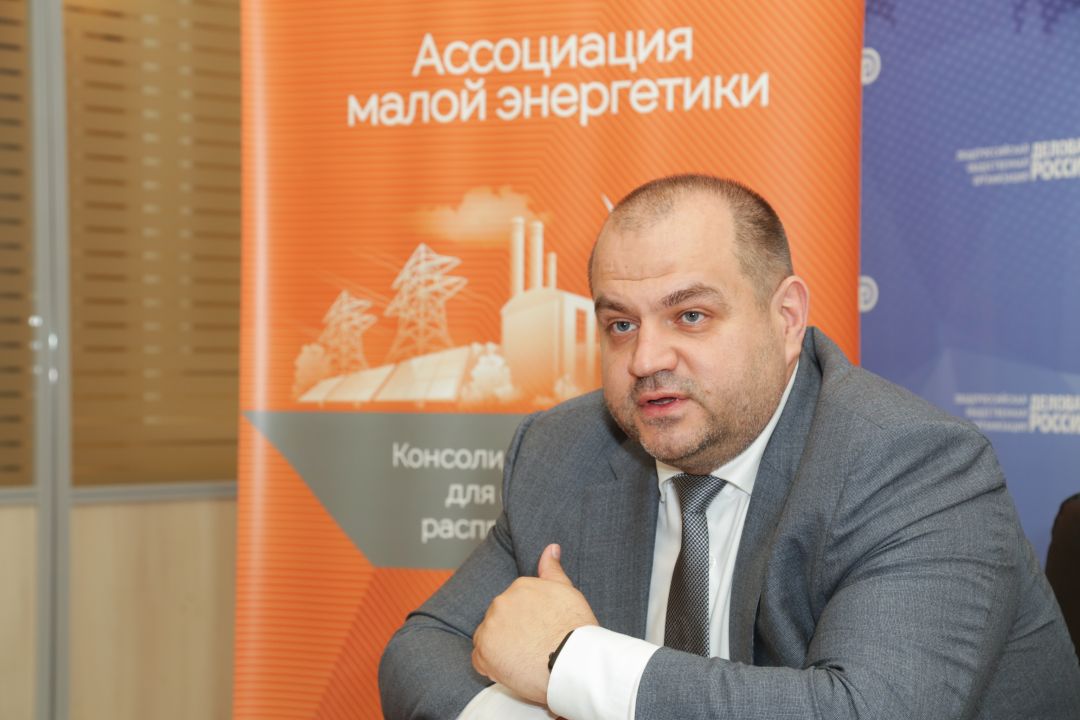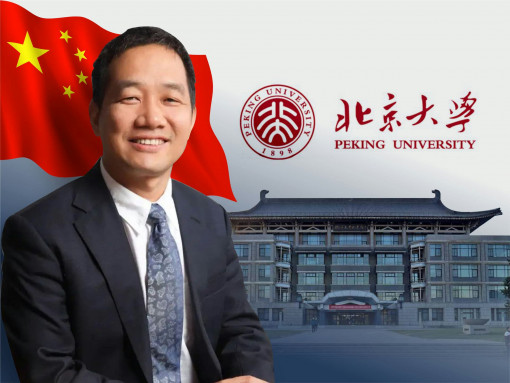Affordable energy is much closer than it seems. On the threshold of the professional holiday, Power Engineers’ Day, Maksim Zagornov, the President of the Distributed Power Generation Association, CEO of MKS Group of Companies, Chairman of the Subcommittee on Distributed Power Generation of the Energy Committee of Business Russia, told in the interview to Energy and Industry of Russia federal publication about the reasons why the small-scale distributed power generation shows stable growth in the midst of the economic crisis, where the industry is heading and which indicators is ahead of the hi-tech West.
— Maksim, how do you assess the current state of the distributed power generation industry? How have the coronavirus epidemic and the following economic crisis affected the enterprises in your industry?
— Clearly, the coronavirus epidemic came into all the economic sectors. On the one hand, the recession has happened, on the other hand, we can see an increase in the interest to small-scale distributed power generation in Russia: due to the deteriorating economic situation, companies began to analyze the expenses more thoroughly, while the own distributed power generation is a real tool for cutting costs. By the way, during more than one year, the world trend of transition to decentralized energy has been developing, when companies consciously move from centralized energy to distributed power generation. This is a natural process, which is primarily associated with the emergence and development of new technologies. One more reason is the reducing of gas cost. In the future, further development of LNG (liquefied natural gas) technologies will become another driver for the implementation of energy projects. This will provide fuel for distributed power generation facilities in remote regions. We can say that the pandemic has accelerated these processes and, in general, had a positive effect on the distributed power generation segment: the demand for such facilities has grown significantly.
— Which areas of work do you prioritize? What projects are you currently working on?
— There are many directions and projects. One of the most promising is the implementation of energy supply contracts. We are talking about the creation of turnkey mini-MPP projects by the forces of MKS Group of Companies at the expense of the investor's own funds or funds with the further receipt of a guaranteed profit and a guaranteed economic effect for the consumer. Increasingly, consumers conclude that the option of self-purchase of objects of their own generation is not suitable for them since their competencies are in another area. Therefore, they prefer to rent generating equipment. Renting of power equipment is a global trend, many companies conclude that it is not necessary to own something, you can rent equipment for a certain period and benefit from it. In this way, there are no costs on the part of consumers, they do not need to build up competencies in the power industry.
— What other opportunities do energy supply contracts give businesses in small-scale distributed power generation?
— Energy service contracts based on equipment lease are, in fact, the only really working tool to reduce the cost of electricity for consumers. Due to the fact, that the power plant is installed directly near the consumer, it is possible to significantly save on electricity transportation, which accounts for almost half of the cost of the tariff. The most important advantage of energy service is the ability to reduce the cost of electricity consumed without expenses of the consumer. At the same time, the rent is lower than their usual budget for the purchase of energy resources.
— Now the work is underway to update the Energy Efficiency Roadmap, which was adopted by Government Decree No. 703 two years ago. The updated document will outline steps in various directions that will improve the situation in this area. Proposals are being developed to improve the legislation in terms of eliminating restrictions on the use of energy service resources. How relevant is this work?
— In my opinion, the existing legislation does not prevent the development of distributed power generation, it allows widely to implement similar energy supply contracts. But there is a danger of legislative regulating of this direction with the active participation of network monopolies. In this way, there is a real danger that we will drop out of the global vector of development of distributed power generation and irrevocably lag. Today, the small-scale distributed power generation market is developing independently, at the expense of private funds, without shifting the burden of costs onto the state or the consumer and reduces existing tariffs. Not everyone is satisfied with this.
— How much does the development of distributed power generation in Russia comply with international standards?
— It might sound surprisingly; we are now in some way even ahead of other countries. We apply all the best world experiences. The most modern and reliable engines are used, although they are still imported. In recent years, a pool of professional engineering companies has been formed that are successfully implementing relevant projects in different regions. I hope such a demand for gas engines will push our specialized companies to establish domestic engine range.
— The Distributed Power Generation Association is strengthening its position, including through inclusion of new strong players in the organization. This year Schneider Electric company has entered in DPGA. How important is it to attract new members in your opinion?
— In fact, our association is small, we do not strive to significantly increase the number of its members. On the contrary, we are creating an association of industry leaders that complement each other with competencies and can, by joining forces, go out to large projects and jointly implement them. I would draw an analogy with the Boing holding, which includes several dozen companies that together produce a good plane. We want the members of our association to create quality products for the market, ready-made solutions in the energy sector.
Also, within the association we plan to develop industry standards, which can then be put in the basis of uniform national standards in the field of distributed power generation and in the future, to create a small-scale distributed power generation sub-sector with its regulations, rules, supervision systems based on this standards.
In Germany, for example, there is a private organization TÜV, which not only monitors product safety, but also certifies participants of the mechanical engineering market and the automotive industry. This internationally respected organization has developed the standards by which some industries in Germany operate today.
In Russia, it is also necessary to deal with certification issues, and if they are resolved from below, it will be faster and more logical: after all, market participants know better what they need to work. We need internal industry standards to keep up with today's realities. It will be better if we develop them ourselves and offer the government to fix them.
— This year the key annual public project by the Distributed Power Generation Association, the VIII Distributed Power Generation — Great Achievements International Award has been held. How did this year competition differ from previous ones?
— Contrary to all conditions of difficult 2020, the VIII Distributed Power Generation — Great Achievements International Award has not only took place, but, undoubtedly, has become the most significant and breakthrough in the history of the competition project. The award not only collected a record number of applications (91 applications from Russia, Austria and the Republic of Belarus), but also under the conditions of a pandemic and restrictions on holding mass events, it has taken place as a very bright and high-quality industry event. For the first time in the history of the competition, the Golden Lightning ceremony has been held in a hybrid format: offline (at the most prestigious venue of the capital, in the Congress Center of the RF Chamber of Commerce and Industry) and online (about 4,000 people watched the broadcast of the ceremony).
— How do you see the prospects for the development of small-scale distributed power generation in Russia?
— This direction has a good prospect in Russia. As we know, in our country, about 80% of large generation equipment is over 40 years old, and in the coming years it will be out of order. It means, that in the next 5-10 years, we will face the problem of lost capacities. Small and medium-sized businesses, as a rule, are in the worst conditions in terms of energy supply and are likely to focus on the development of distributed power generation, which is not only affordable, but also can be quickly deployed locally, requires lower costs, and provides electricity for attractive price. I think, for 10-15 years distributed power generation will take a significant share in the country's energy balance.
— Could you mention the leading regions in the development of such a generation?
— First, this is the Chelyabinsk region, where a high engineering potential has been accumulated, there are many large consumers. At one time, MKS Group of Companies and the Distributed Power Generation Association carried out a lot of work here for the development of distributed power generation. Now other regions are catching up, and this is good news.





